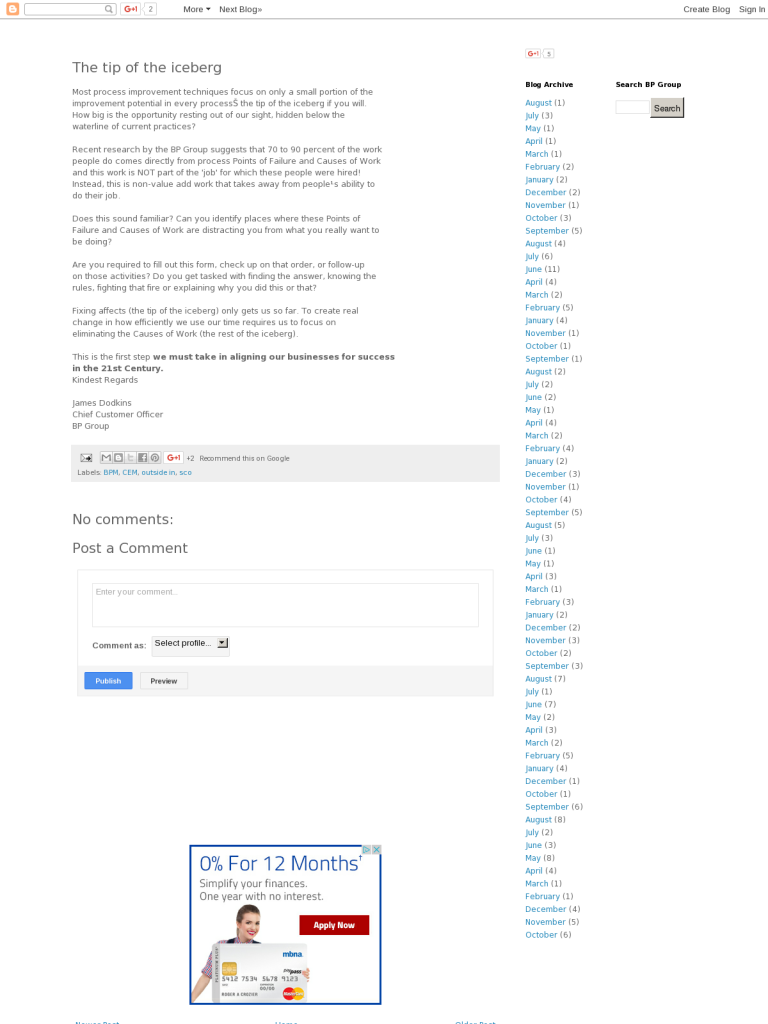The tip of the iceberg
Blog: BPGroup.org
improvement potential in every processŠ the tip of the iceberg if you will.
How big is the opportunity resting out of our sight, hidden below the
waterline of current practices?
Recent research by the BP Group suggests that 70 to 90 percent of the work
people do comes directly from process Points of Failure and Causes of Work
and this work is NOT part of the ‘job’ for which these people were hired!
Instead, this is non-value add work that takes away from people¹s ability to
do their job.
Does this sound familiar? Can you identify places where these Points of
Failure and Causes of Work are distracting you from what you really want to
be doing?
Are you required to fill out this form, check up on that order, or follow-up
on those activities? Do you get tasked with finding the answer, knowing the
rules, fighting that fire or explaining why you did this or that?
Fixing affects (the tip of the iceberg) only gets us so far. To create real
change in how efficiently we use our time requires us to focus on
eliminating the Causes of Work (the rest of the iceberg).
This is the first step we must take in aligning our businesses for success
in the 21st Century.
Kindest Regards
James Dodkins
Chief Customer Officer
BP Group
Leave a Comment
You must be logged in to post a comment.








